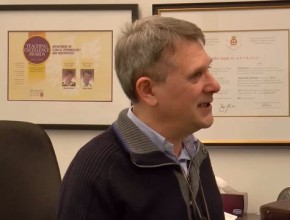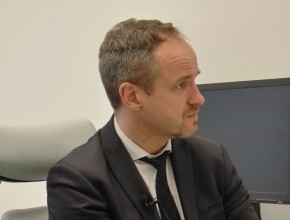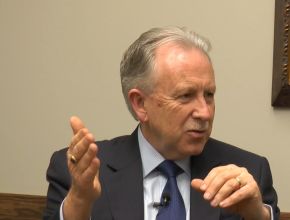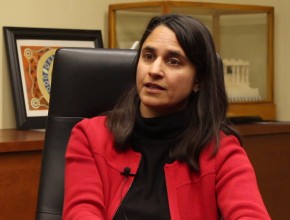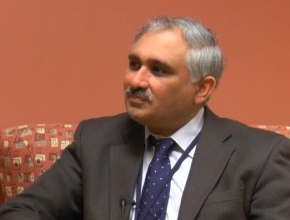References
WHO Guideline for the Treatment of Drug-resistant Tuberculosis. World Health Organization. http://www.who.int/tb/areas-of-work/drug-resistant-tb/guideline-update/en/. Accessed September 1, 2017.Roman Jaeschke: Good afternoon. Welcome to another edition of McMaster Perspective. We have a pleasure again to be with Professor Schünemann, the head of the Department of Health Research Methods, Evidence, and Impact at McMaster University. Professor Schünemann, I understand you were recently involved in another practice guideline development dealing with tuberculosis. Could you tell us more about it?
Holger Schünemann: Sure. Thanks again for having me. The guidelines that I was involved with dealt with multidrug-resistant tuberculosis (MDR-TB), so in other words, cases of tuberculosis that are not curable by traditional antibiotics that have been used for treatment of tuberculosis and require more extensive treatment. These guidelines are particularly interesting because in the past few years new drugs have emerged that are being used to treat MDR-TB; the first tuberculosis drugs in decades. Two of these drugs are bedaquiline and delamanid. These drugs – interventions, medications – have been evaluated by the World Health Organization (WHO) in guidelines that deal with MDR-TB.
The case of bedaquiline is particularly interesting. It has been suggested to add it to existing MDR-TB treatment regimens in the past but there was a lot of hesitation, because there were signals that the use of the drug leads to a large proportion of MDR-TB patients being cured – approximately a quarter more than when not using that medication – but the risk of death relatively speaking was suggested to be increased 10-fold. That was based on a randomized controlled trial (RCT) that had been done and was utilized in the previous iteration of these interim guidelines that the WHO published. The WHO was interested in conducting a guideline initiative and publishing guidelines because these medications were so promising. When we looked at the data a few years back, we were shocked by seeing that signal of potential side effects.
When we went back with much more data accumulating – data from using the drug in real practice in many countries, many settings – that signal of an increased risk of death has disappeared. We were likely dealing with a statistical fluke or statistical signal that was not confirmed by more data once more data arose. It looks like the efficacy of the medication is there but the risk of side effects was overestimated in the one small trial, in only about 160 patients with MDR-TB; there that signal was wrong.
Roman Jaeschke: So the mortality was increased, say, from 3% to 15%?
Holger Schünemann: The mortality was increased from approximately 1% to almost 10%. In the trial that was conducted around 2012, 2011, 1 out of approximately 80 patients in the control group died and 9 patients in the intervention group died.
Roman Jaeschke: Before wide dissemination of those guidelines would there be an attempt to do another RCT on that or are we comfortable enough with the observational data showing that is not the case?
Holger Schünemann: Ideally, additional RCTs would be conducted and are being conducted with this particular medication. It is a bit tricky because the adjustment of regimens to treat MDR-TB is very context-specific, and it is tricky to conduct trials that are generalizable across the world. But these trials are being conducted. For the time being, what we were primarily concerned with were the safety data. Given the paucity of data – these 10 events in one trial that I described – we, or the WHO was very careful to look at all the observational data that may be of better quality than this one trial with very few events. We ended up conducting an individual patient data meta-analysis with data from many different countries that were supplied to find out whether or not this risk of death was really that much elevated.
Roman Jaeschke: I guess if anybody wants to know more about the guidelines, they are welcome to use the document that we presented at the start of this interview. Thank you very much.
Holger Schünemann: Thank you.
 English
English
 Español
Español
 українська
українська

